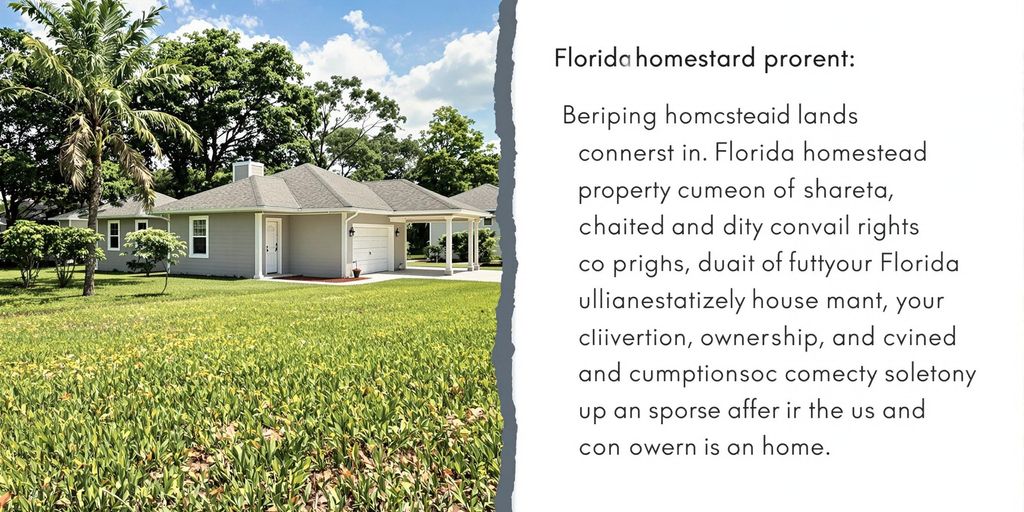Navigating the complexities of Florida’s homestead laws can be challenging, especially when co-owners disagree on property use or sale. This article delves into whether homestead property in Florida can be partitioned, exploring the legal avenues available to co-owners seeking to divide or sell such assets. Understanding these rights and limitations is crucial for anyone involved in shared property ownership in the Sunshine State.
Understanding Homestead Property in Florida
Florida’s constitution provides significant protections for homestead property, shielding it from forced sale to satisfy most debts. However, these protections are not absolute, particularly when multiple individuals hold ownership interests in the property. When co-owners cannot agree on the management or disposition of their shared homestead, legal action may be necessary.
Partitioning Homestead Property: The Legal Landscape
Florida law does permit the partition of homestead property under specific circumstances. A partition suit allows co-owners to ask a court to divide the property or, if division is not feasible, to order its sale and distribute the proceeds. This process is a statutory right for co-owners who wish to sever their joint ownership.
Key takeaways regarding the partition of homestead property in Florida include:
- Court-Ordered Sale: If homestead property cannot be physically divided among co-owners without prejudice, a court can order its sale. This sale is permissible to protect the beneficial enjoyment of all owners according to their respective interests.
- Estate Distribution: Florida statutes also allow for the partition of property within an estate. A personal representative or a beneficiary can petition the court to partition inherited property, including homesteads, before the estate is closed. The court may order the sale of property that cannot be equitably or conveniently partitioned.
- Conflicting Decisions: It’s important to note that there have been conflicting judicial decisions regarding the partition of homestead property occupied by a divorced spouse and minor children, especially when the wife is considered the head of the household. This area of law can be complex and fact-specific.
Who Can Initiate a Partition Suit?
Generally, any co-owner of real property can initiate a partition suit. This right is fundamental to preventing one owner from being forced to remain in a co-ownership situation against their will. However, the specific rights and procedures can vary depending on the nature of the co-ownership and the property’s status, including whether it is designated as homestead.
Conclusion
While Florida’s homestead laws offer robust protection, they do not create an insurmountable barrier to partition. When co-owners cannot reach an agreement, the legal system provides mechanisms for dividing or selling shared homestead property, ensuring that all owners can realize the value of their interests.


